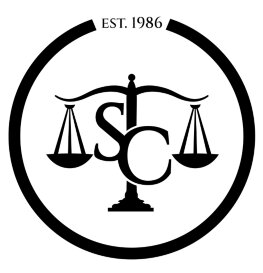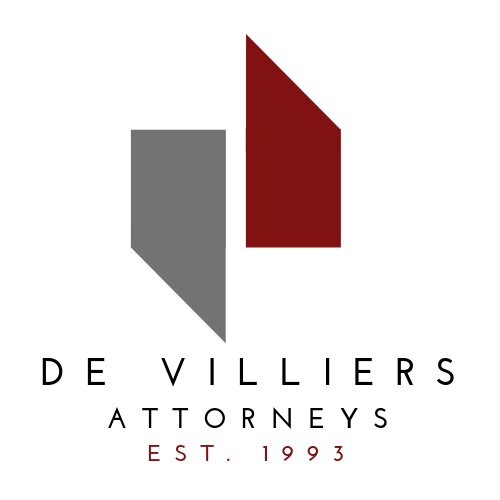Best Education Law Lawyers in South Africa
Share your needs with us, get contacted by law firms.
Free. Takes 2 min.
Or refine your search by selecting a city:
List of the best lawyers in South Africa
About Education Law in South Africa
Education Law in South Africa is primarily governed by the South African Schools Act of 1996 and the Constitution of the Republic of South Africa, 1996. This area of law focuses on all aspects relating to the rights, responsibilities, and regulations surrounding education in the country. It encompasses various issues such as the right to education, equal access to educational opportunities, safety and discipline in schools, and the governance of educational institutions.
Why You May Need a Lawyer
There are several scenarios where individuals or educational institutions may require legal assistance in the realm of Education Law:
- Access to Education: If there are disputes about a child's right to attend school or challenges regarding admission policies, legal advice might be necessary.
- Discrimination: Cases involving discrimination against students or staff based on race, gender, disability, or other protected characteristics can require legal intervention.
- School Governance: Legal guidance can be critical for issues involving the governance and administration of schools, including disputes in school governing bodies.
- Disciplinary Actions: Legal advice may be needed in cases of student or teacher disciplinary issues, including unfair dismissals or suspensions.
- Curriculum and Content Disputes: Conflicts over educational content and curriculum implementation may necessitate legal expertise.
- Safety and Security: Legal proceedings might be initiated due to incidents or concerns around the safety and security of students and staff within educational facilities.
Local Laws Overview
Education Law in South Africa is intricately connected to various legal standards and statutes:
- The South African Constitution: It enshrines the right to basic education as a fundamental human right, highlighting the importance of accessibility and non-discrimination.
- The South African Schools Act, 1996: A pivotal piece of legislation that governs the provision of education nationally, it outlines the functions of school governing bodies and establishes guiding principles for public schooling.
- Employment of Educators Act, 1998: This act stipulates conditions of employment and disciplinary procedures for educators, ensuring justice and equity within the education workforce.
- National Education Policy Act, 1996: This legislation sets out policy planning and assessment processes that schools must adhere to, allowing for the development of an inclusive educational landscape.
Frequently Asked Questions
1. What is the basic right to education in South Africa?
Every child has the right to basic education, as guaranteed by the South African Constitution. This includes access to schooling without discrimination.
2. What constitutes educational discrimination?
Discrimination in education occurs when students or staff are treated unfairly based on attributes such as race, gender, disability, or other protected categories.
3. How are public schools governed in South Africa?
Public schools are managed by School Governing Bodies (SGBs), which comprise elected members including parents, teachers, and community representatives.
4. What are the repercussions of misconduct for educators?
The Employment of Educators Act outlines specific disciplinary procedures and repercussions for educators found guilty of misconduct, including dismissal.
5. Can a child be refused admission to a public school?
A child cannot be unfairly denied admission to a public school. Admission must be consistent with national policy and should not be discriminatory.
6. How are school fees regulated?
School fees are set by SGBs and must consider local socio-economic contexts. Fee exemptions can be applied for under certain conditions.
7. What is the policy on homeschooling?
Homeschooling is legal but must be registered with the provincial education department. Parents must adhere to specific educational criteria.
8. Are there laws protecting special needs students?
Yes, students with special educational needs are protected under various regulations, ensuring their right to equal access and support in education.
9. What should a parent do if they disagree with a disciplinary decision?
Parents can appeal against disciplinary decisions by following the school's appeal procedure or seek legal assistance if necessary.
10. Who handles complaints about school operations?
Complaints should initially be addressed to the school’s governing body. Further grievances can be escalated to the provincial educational department if needed.
Additional Resources
For those seeking further assistance, consider reaching out to the following organizations:
- Department of Basic Education: Oversees primary and secondary education in South Africa.
- Equal Education Law Centre: Offers legal support and advocacy services focusing on educational equality.
- Legal Aid South Africa: Provides subsidized legal services to those who qualify.
- South African Council for Educators (SACE): Professional council for educators, providing guidance and handling educator misconduct.
Next Steps
If you require legal assistance with Education Law matters, consider these steps:
- Identify the Issue: Clearly understand the nature of your legal problem and gather relevant documentation.
- Consult with a Lawyer: Seek advice from a lawyer specializing in education law to assess your situation and discuss potential courses of action.
- Contact Relevant Authorities: Depending on the issue, reaching out to educational or governmental bodies may provide immediate assistance or mediation.
- Pursue Legal Representation: If necessary, engage a lawyer to formally represent you in disputes, negotiations, or court proceedings.
Remember, timely legal advice can be crucial in resolving educational disputes effectively and ensuring the protection of rights within the educational sector.
Lawzana helps you find the best lawyers and law firms in South Africa through a curated and pre-screened list of qualified legal professionals. Our platform offers rankings and detailed profiles of attorneys and law firms, allowing you to compare based on practice areas, including Education Law, experience, and client feedback.
Each profile includes a description of the firm's areas of practice, client reviews, team members and partners, year of establishment, spoken languages, office locations, contact information, social media presence, and any published articles or resources. Most firms on our platform speak English and are experienced in both local and international legal matters.
Get a quote from top-rated law firms in South Africa — quickly, securely, and without unnecessary hassle.
Disclaimer:
The information provided on this page is for general informational purposes only and does not constitute legal advice. While we strive to ensure the accuracy and relevance of the content, legal information may change over time, and interpretations of the law can vary. You should always consult with a qualified legal professional for advice specific to your situation.
We disclaim all liability for actions taken or not taken based on the content of this page. If you believe any information is incorrect or outdated, please contact us, and we will review and update it where appropriate.
Browse education law law firms by city in South Africa
Refine your search by selecting a city.















